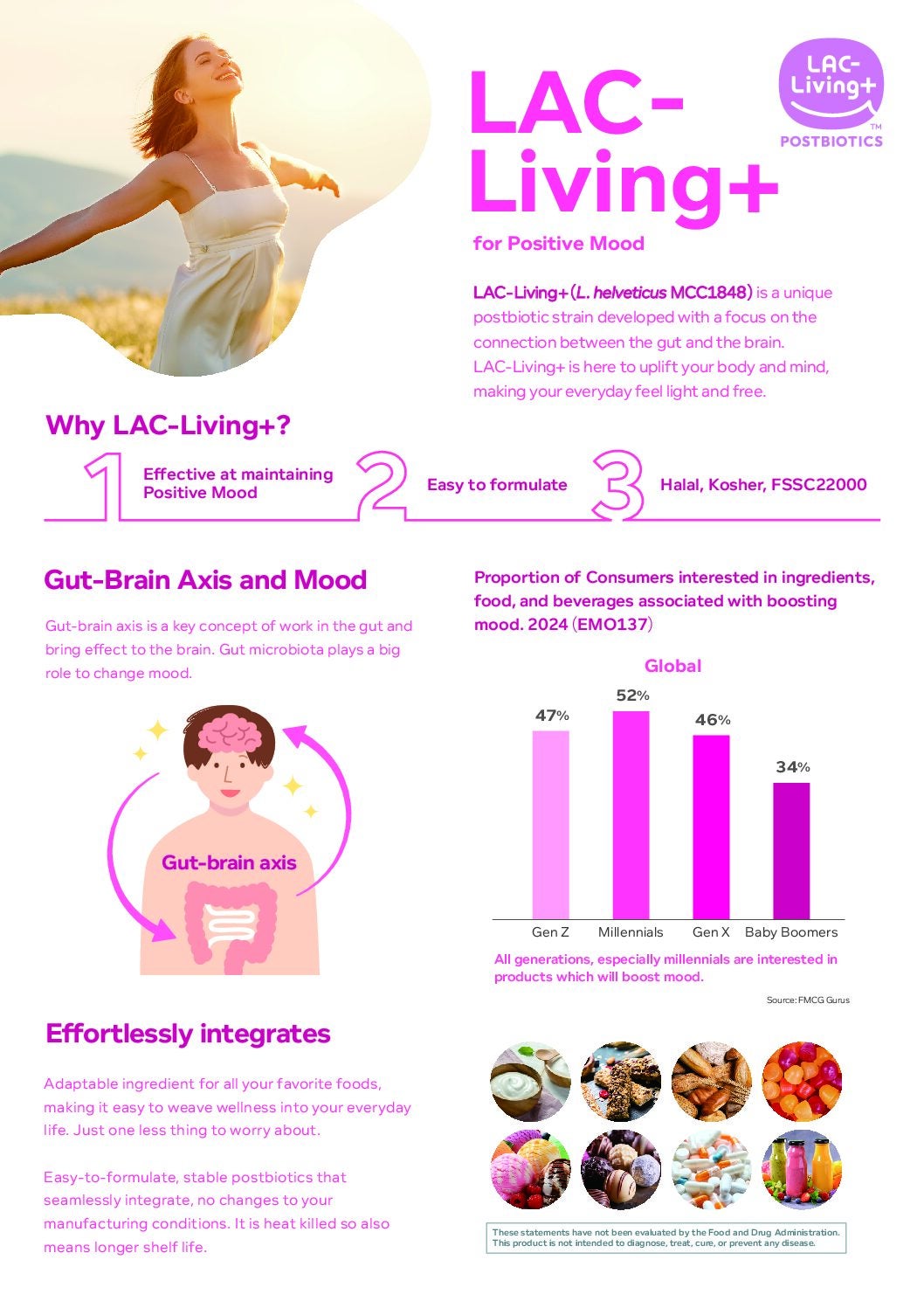
Consumers today are proactive about their physical and mental wellness, embracing a mix of preventative and curative health strategies. Many now recognise that diet and lifestyle can not only manage or prevent chronic diseases and weight issues but also improve mental health. According to GlobalData’s TrendSights, health & wellness has become a mega-trend driving people of all ages to address their health in a more holistic and personalised manner.
The global vitamins and dietary supplements market is on a steady rise, projected to grow from $138.2 billion in 2024 to $188.7 billion by 2029. Much of this momentum comes from high-growth economies and health-conscious populations. Asia-Pacific is currently the largest supplements market, accounting for approximately 46% of global sales by value, predominantly due to the consumer base in China and a cultural affinity for functional foods. Other high-growth regions, such as parts of the Middle East, Latin America, and Africa are also seeing rising health consciousness and spending on supplements. These markets tend to have younger demographics and fast adoption of mobile technology, meaning the guided health trend could rapidly amplify awareness of novel ingredients.
Understand the importance of the gut-brain axis
Underpinning this trend in holistic wellness is a growing understanding of the gut-brain axis, which is the bidirectional communication network between the gastrointestinal tract and the central nervous system. The core idea is that the condition of your gut can influence how you feel emotionally, and vice versa.
Gut microbiota play a key role in this relationship. When the balance of gutbacteria is disrupted, it’s not only digestive issues that arise; researchers have linked dysbiosis and gut inflammation to several mental health conditions, including anxiety and depression. Emerging evidence demonstrates the significant role of the gut microbiome in influencing mental health, suggesting that alterations in gut bacteria can lead to changes in brain function and behaviour.[i]
Nutritional psychiatry experts often advise patients on dietary changes, such as eating more fibre, fermented foods, and omega-3-rich foods, that foster a gut environment conducive to good mental health. Indeed, diet is a key modulator, with research showing that healthier dietary patterns are associated with lower depression risk.[ii]
Introducing LAC-Living+ (Lactobacillus helveticus MCC1848) for mood support
One of the latest breakthroughs at the nexus of gut health and mental wellness is LAC-Living+ (Lactobacillus helveticus MCC1848), a specific bacterial strain with mood-modulating potential.
In a randomised, placebo-controlled trial, healthy young adults consumed heat-killed MCC1848 (5 billion cells per day) for four weeks. Researchers assessed mood changes using validated psychological scales, including the Profile of Mood States 2nd Edition (POMS2) and the Positive and Negative Affect Schedule (PANAS). The MCC1848 group showed significantly greater improvements in positive mood compared to the placebo group. In particular, two key indicators of a good mood, including “friendliness” (a POMS2 subscale reflecting sociable, cheerful feelings) and self-rated “relaxation” increased in the postbiotic group. Furthermore, no adverse effects were observed over the 4-week supplementation period, and measures of fatigue, sleep quality, and anxiety remained similar between the postbiotic and placebo groups.[iii]
Postbiotics vs probiotics
What sets MCC1848 apart is that it’s deployed as a postbiotic. Probiotics are live microorganisms that, when administered in adequate amounts, confer a health benefit to the host, whereas postbiotics are a preparation of inanimate microorganisms and/or their components that offer the same benefits. Inanimate here means the cells are dead but intact or in fragmented form, sometimes with their fermented metabolites. MCC1848 is inanimate bacteria and having intact cells, which make it easier to count the cell numbers.
For manufacturers and consumers alike, postbiotics offer some practical advantages over traditional probiotics, including formulation flexibility and stability that can be incorporated into a wide range of formats, such as capsules, tablets, powders, baked goods or beverages, without concern for killing the culture. Postbiotics also typically have a long shelf-life since there are no live cells to keep alive, making them attractive for broad consumer use and global distribution, where maintaining a cold chain for probiotics can be challenging.
Lactobacillus helveticus MCC1848 is the star ingredient in Morinaga Milk Industry’s new postbiotic, LAC-Living+, which exemplifies this versatility. It remains stable through heat and pH variations, allowing seamless integration into foods and drinks, meaning mood-supporting postbiotics could be used in everything from protein shakes to granola bars or tea, greatly expanding innovation opportunities.
LAC-Living+ is part of a new frontier of dietary supplements and functional foods that align with growing consumer trends toward holistic, personalised, and digitally-assisted health management. MCC1848 offers a timely, innovative answer to demand for products that help consumers “feel good”, especially in markets where wellness and technology are driving the next wave of growth. With science on its side and wellness goals in its sights, this postbiotic could well become a cornerstone of the next generation of mood-support supplements, catering to happier guts and happier minds alike.
To find out more about LAC-Living+, download the brochure below.
[i] https://pubmed.ncbi.nlm.nih.gov/40283148
[ii] https://www.health.harvard.edu/blog/gut-feelings-how-food-affects-your-mood-2018120715548
[iii] https://www.morinagamilk.co.jp/english/research/presentation/scholarly/strain.html



